“Funding money to buy market access†is just an expediency 1.28 fears that the pound is an insurmountable obstacle
This article was first published on the WeChat public account: Cloud Leopard Entropy. The content of the article belongs to the author's personal opinion and does not represent the position of Hexun.com. Investors should act accordingly, at their own risk. On December 7, the British Parliament expressed support for the withdrawal schedule proposed by Prime Minister Theresa May. But at the same time, the rebound of the pound has come to an abrupt end. Why is this? Because the recent favorable remarks about "paying for a single market" are mainly to obtain the consent of the parliament, it is not the intention of the British government to justify the resignation of Brexit. It is more likely that the UK will enter into a bilateral trade agreement with the EU (Swiss model) to maximize access to a single market while ensuring that immigration issues are controlled as much as possible. After a heated debate on Wednesday (7th), the British Parliament supported the government’s motion to announce its Brexit plan (mainly the opposition Labor Party’s promotion) with 448 to 75 votes, but also recognized the government’s timetable for Brexit, namely next year. The Brexit process will be launched before the end of March. Earlier this month, the British High Court ruled that the government could not initiate Article 50 of the Lisbon Treaty without submitting a parliamentary vote, which would begin the Brexit process for about two years. This time, the parliament finally got the affirmation that the government has the right to start the Brexit procedure, but the condition is that the government should be more open and honest about its Brexit plan. The core purpose of the parliament (exactly the Labour Party) is to avoid the government's "hard retreat", or at least to know in advance to obstruct. Labour Party's Brexit spokesperson Keir Starme said, "The request to provide a plan to set the target of the negotiations is not to weaken Britain's position in the Brexit negotiations, nor to obtain a live announcement, in fact for clarity. , review and accountability," he said. If the government can't provide a sufficiently detailed plan, the Labor Party will renew its difficulties and say that the Labor Party's goal is to avoid "hard retreat." Mei Long has been under tremendous pressure from the parliament, the business community, investors and the anti-working party. They are extremely dissatisfied with the lack of transparency in the Brexit strategy, and she is required to at least plan the general framework of the future relationship between the UK and the EU. For example, Bank of England Governor Carney said at the end of last month that the British government intends to withdraw from the EU, and British companies need more visibility. “It’s best for companies to be as clear as possible about what they are going to be, what kind of relationship they will be in the future, and to understand as much as possible the possible ways to achieve the goal,†Carney said. “Having a certain degree of visibility, where appropriate, will help promote a smooth and orderly transition.†Mei’s previous attitude was that she would not always comment on the British government’s Brexit plan, which she said would weaken Britain’s negotiating space. However, her recent leadership of the British government has quietly turned and suddenly became mild. A week before the parliamentary vote (December 1st), the UK's Brexit Minister Davis said that the UK would consider paying the EU after leaving the European Union in exchange for the power to enter the EU market. When a Member asked if the government was considering paying the EU in any form to gain access to the EU single market, Davis said, "The main criterion is that we can get the best access to goods and services into the EU market, if this Including what he is talking about, then we will certainly consider it." Boosted by this news, the pound once rose to around 1.28, becoming the best non-US currency after Trump was elected: However, the softening of the attitude of the Mei government is clearly related to the appeal of the parliament to support its timetable for Brexit. After all, a month ago, the British High Court ruled that the Prime Minister had no right to start the Brexit. Mei did not want to be extra-budgeted. To some extent, the Mei government has already got what it wants. Reuters reported that the parliament agreed with the government's request for the parliament to support Teresa May's request for the Brexit timetable. Labour MPs were therefore accused of falling into a trap - allowing the minister to start without consultation with the parliament. Exit the EU. It is not the Mei government's wish to pay to enter the EU single market. It is not a question of payment. The so-called spending money to buy access is actually a Norwegian model, allowing the UK to be a member of the European Economic Area (EEA) and freely moving goods and services with the EU. It is only a trivial matter for EEA member states to pay membership fees. The real problem is that the UK cannot impose restrictions on immigration. If you can get both single market access and restrict immigration (the most favorable situation for the UK, better than staying in the EU), then the developed countries in the EU do not want to do this, do they follow the example? From the perspective of "Mom Boss", I also know that for employees who want to quit, to give such a good treatment, isn't it encouraging other man-made counters? And if the UK gives up restrictions on immigration in order to gain a single market access, what else does it leave for Europe? Don't forget that the immigration issue is the main consideration (at least one) of the British people's choice to leave the European Union. Therefore, the choice that the Mei government is facing in essence today is whether it is a single market or a restriction on immigration. This is indeed a "difficult choice", even for the British people. According to a survey released by the National Centre for Social Research, the UK's largest independent social research institution, 90% of referendum voters hope to continue free trade with the EU after the Brexit, including 94% of EU referendums and 90% of referendums. Brexit supporters. Other options? Most likely a bilateral trade agreement So what are the other options for the British government? These options include a bilateral agreement between the UK and the EU, and the UK as an independent member of the World Trade Organization (WTO) – that is, not signing any specific agreement. Of course, there may be a kind of mediation. The British government ignores the results of the referendum and continues to stay in the EU. However, from the standpoint of the current Mei government, this may be very small, so it will not be discussed. Among them, the most likely is that the United Kingdom is seeking a bilateral agreement with the EU, which also means that it will follow the Swiss model. Not only did Switzerland not join the European Union, but the EEA that Norway joined did not participate, but participated in the European Free Trade Association (EFTA) and negotiated with the EU on this basis (but the challenges of free movement of people still face challenges). Speaking of the fact that the UK is one of the seven founding members of EFTA, it only withdrew and joined the European Community in 1972. The extent to which this road is beneficial to the United Kingdom depends on the outcome of specific negotiations. To a certain extent (especially from the perspective of negotiating the government), it is not unreasonable that May has refused to disclose more details of the negotiations. As she said (explaining why it needs to be safe), “we need to turn our energy to how to get the best results for our countryâ€, “this means sticking to our plans and timetables, and formulating our negotiation strategy. Instead of putting the cards in our hands on the negotiating table – that is not in our national interest and does not help us to get the best deal for the UK.†With regard to the free movement of people, according to the Swiss-EU Free Flow Agreement (FZA), the basic rules for the free movement of people in the EU will gradually apply between Switzerland and the EU. But the agreement specifies the transition period. During this period, immigration is subject to partial restrictions, such as the choice of residence, temporary control of wages and employment terms, and the choice of place of residence is subject to restrictions (limits). After the expiration of the limit regulations, if there are unexpectedly large and out-of-average immigrants, the agreement has the right to continue to restrict the choice of place of residence for a certain period of time in accordance with the security provisions. In a referendum in February 2014, Swiss citizens passed a proposal to restrict EU immigration with a slight advantage. Two and a half years after the referendum, Switzerland still has not taken any measures to restrict EU immigration, and the free movement of the population remains the same. In order to put the results of the referendum into practice, Swiss diplomats have been trying to negotiate with the EU in an attempt to reach a new agreement, but the EU's response is frosty. According to the Swiss Constitution, the Swiss government must, by March 2017, enact laws based on the results of the referendum to limit EU immigration. It’s only a few months before this deadline. (If you can’t do it, you can talk to the United Kingdom...). This is also enough to show that the EU's high regard for the free flow of people also highlights the difficulty for the UK to have both. According to Cloud Leopard, the likely result is that, like the original Switzerland, the EU gave Britain a certain period of time, and the basic rules for the free flow of people gradually applied between the UK and the EU. The extent to which it can be talked about depends on the progress of the negotiations, and it is better not to bring behind the followers. Otherwise, Merkel will not be able to step down. As for the trade with the EU as an independent member of the WTO, it is a lower policy, because it means that the trade between the UK and the EU is no different from that of other WTO members, and it is very unfavorable for the UK's economic growth. So what is hard retreat? In fact, it is very simple, give up all potential benefits that can be pursued, and the worst possible outcome is hard Brexit. In the eyes of Yunbao, trade with the EU as an independent member of the WTO is a hard Brexit. Next is a question that investors are more concerned about. How will the pound behave? How is the pound going? The resistance of 1.28 is hard to overcome First of all, we need to be clear that Mei Lan’s attitude is still between soft and safe, and does not affirm or deny either. As mentioned above, whether it is hard or soft depends on the outcome of the negotiations, not the attitude/form of negotiation. Therefore , there will be no answer before the start of the Brexit process before the end of March next year. As shown in the chart, since the referendum, the pound has experienced three waves of decline. Among them, whether the referendum results are announced or the Bank of England cut interest rates in early August and the QE is expanded, the pound has been oscillating in the range of 1.28-1.36 (about 1.32 as the center). Including the expansion of QE, the pound did not fall below the previous low, indicating that this is the equilibrium position of the market at that time. Until the beginning of October, Mei published a statement about hard Brexit, which led to the sterling broke down, and fell below the 1.20 level in the flashback on the 7th. From a technical analysis point of view, it is very difficult for the pound to break through 1.28. From Goldman Sachs: 1.2800-1.2893 is a multiple resonance resistance area. The area includes the 100-day moving average resistance, the 23.6% retracement of the June high, the C wave target position of the ABC adjustment wave starting at the October low, and the four-wave retreat position of the long-term decline of 5 waves. Once the fourth wave Upon completion, it will begin to drop the fifth wave. Therefore, from a technical perspective, there is a downside risk to the pound against the dollar. Synchronized more than directly doing more dollars:
The PE rope is a fibrous material obtained by spinning a polyethylene by melt spinning, including short fibers and filaments.
PE rope has high strength, low density, good insulation, stable chemical properties, good chemical resistance and corrosion resistance, and is mainly used in industrial, commercial, construction, marine and fishery applications. Residential use.
Climbing Mountaineering Rope,Fall Protection Rock Rope,Synthetic Winch Rope,Winch Accessories Rope Yangzhou YILIYUAN Rope & Net Factory , https://www.yzknsmy.com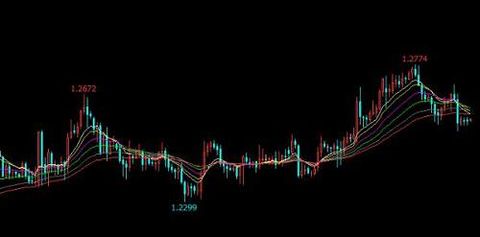
Pro-European forces try to avoid "hard Brexit", the British government pressures Shanda 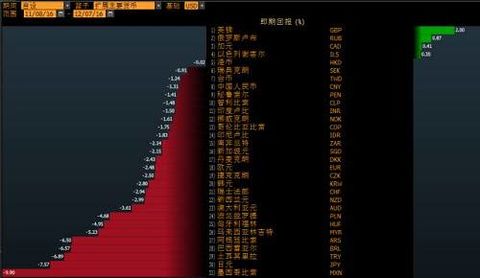
Talking about "paying to buy a single market" is just a plan to slow down 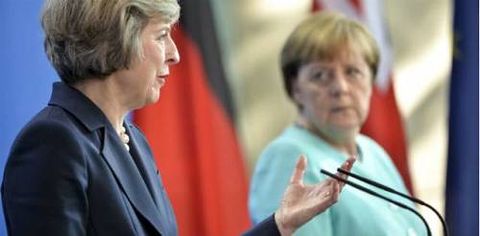
To enter the EU single market, it is necessary to ensure the free flow of the four basic free personnel, goods, services and financial market products, which is not to be pick and choose. This is the attitude of the EU's chief negotiator, Michel Barnier, and the EU. The original words of the main leader, German Chancellor Merkel. 
At the same time, up to 70% of voters believe that the UK should limit immigration, including 85% of Brexit supporters and 55% of EU supporters. 
But if it is difficult for both to have both, is it willing to give up restrictions on immigration in exchange for free trade? People with negative attitudes once again occupy the majority: 
If the Mei government decides on the standpoint of public opinion (it seems to be the case so far, she urged the pro-European people to accept the people's decision at the beginning of last month), then it seems unlikely that it will enter the EU single market in the form of payment. 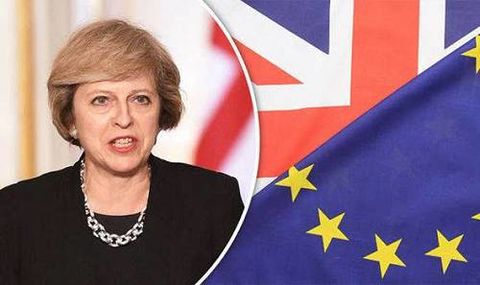
The Swiss economy is highly dependent on trade with EU countries, the Free Trade Agreement signed in 1972 and the bilateral agreement I signed in 1999, and the bilateral agreement II reached in the second round of negotiations in 2004. Switzerland has reached a series of bilateral agreements with the European Union covering trade technology barriers, public procurement, free movement of people, and cross-border cooperation in agriculture. 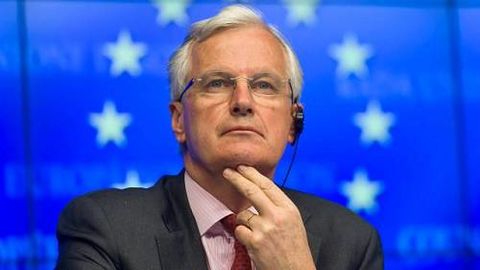
Recently, when asked about the British "hard" Brexit or "soft" Brexit dispute, the EU's chief negotiator Barnier said: "Frankly, I don't know what is hard Brexit or soft Brexit.. We can say that Brexit is: ... We hope to reach a clear agreement; we hope to reach this agreement within a limited time; we hope that it will take our views into consideration." 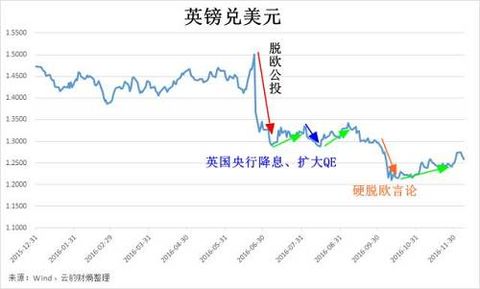
This means that if the pound wants to go back above 1.28 (the breakout caused by hard Brexit in early October, the dollar is stronger now than it was three months ago), Mei Lan needs to completely eliminate the idea of ​​hard Brexit (however, the aforementioned analysis Indicates that this is unlikely.) Therefore, we also see that after the recent Brexit Minister Davis stated that “considering spending money to buy a single marketâ€, the British pound once rushed to around 1.2780, but the rebound only stopped there. 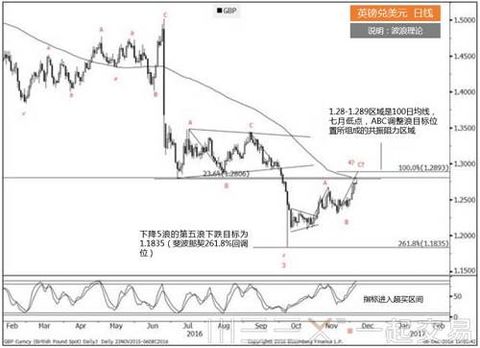
(Traded by WEEX together) However, although it is not recommended to do more pounds against the US dollar, the data since 2000 shows that when global investors fully do more US real rate of return, the pound against the Australian dollar is basically rising simultaneously. The picture is the Australian dollar against the British pound, so it is reverse order). 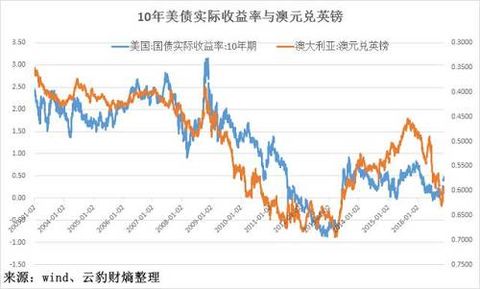
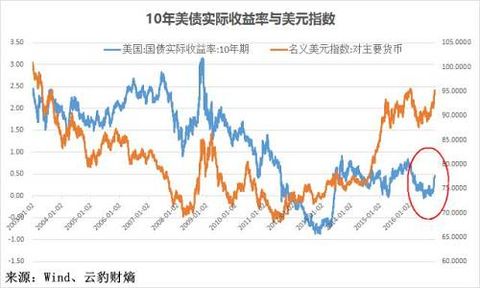
If you believe that the recent prevailing US real rate of return is sustainable, then it is a good choice to do more pounds against the Australian dollar.